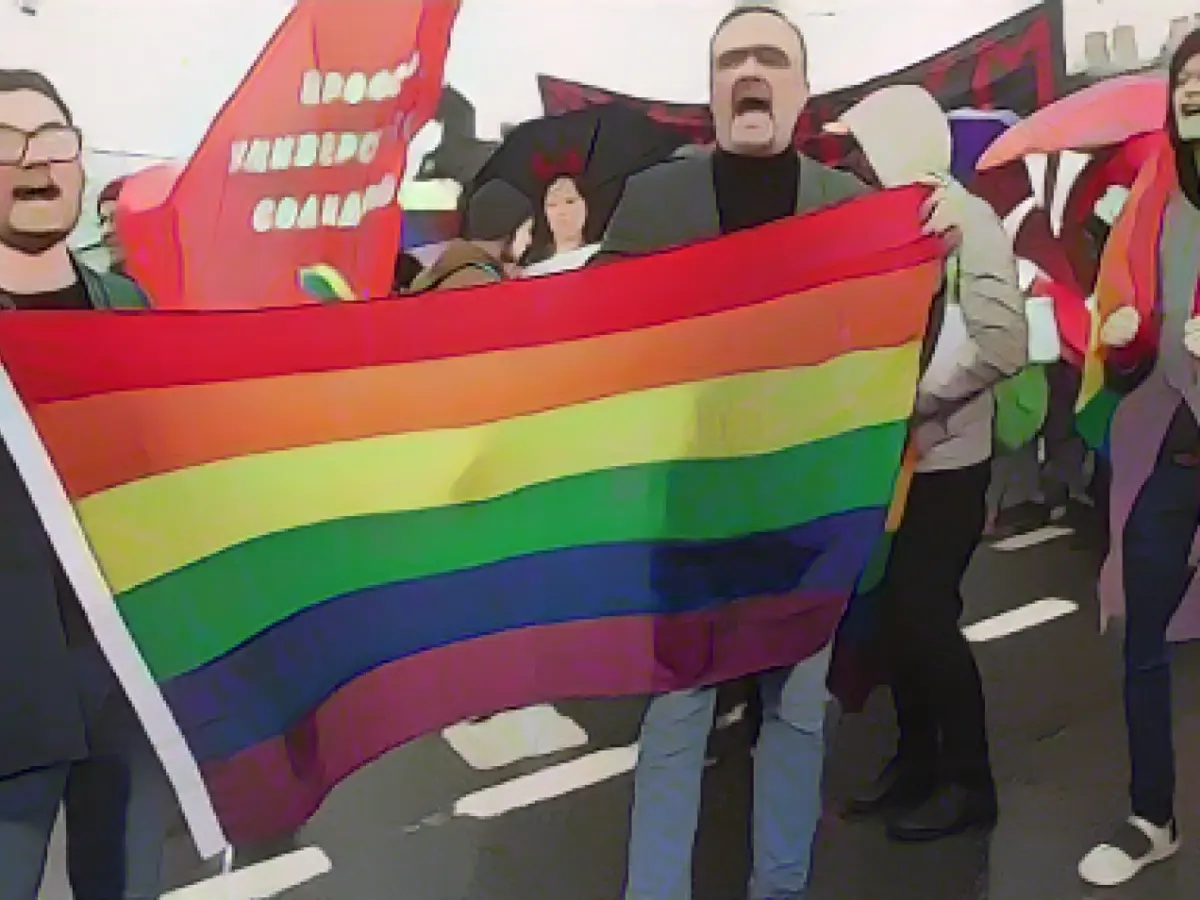Discrimination - Russia bans LGBTQI+ movement as "extremist"
The Supreme Court in Russia has categorized the LGBTQI+ community as "extremist" and thus further massively restricted the rights of gay, lesbian and other queer people. The judges approved a corresponding application by the Russian Ministry of Justice on Thursday, as reported by the Interfax agency with reference to the court. Accordingly, it was decided to "recognize the international public LGBT movement as an extremist organization and ban its activities in Russia".
The action had already been heavily criticized in advance by human rights activists. Independent Russian media now pointed out that the judges had not even clarified who exactly they considered to belong to the"LGBT movement". Accordingly, the specific effects of the ruling were not initially known. Queer activists, who have already been subjected to major repression before, fear that the main aim of the Russian judiciary's actions is to silence them completely in public and fuel further hatred towards minorities.
The abbreviation LGBTQI+ stands for lesbian, gay, bisexual, trans, queer and intersex people - and the plus sign and asterisk are placeholders for other identities and genders.
Major international protest
Russia has been taking massive action against social diversity in its own country, particularly since the start of the war of aggression against Ukraine in February 2022. Around a year ago, a law was passed that banned so-called "LGBT propaganda" - in effect, any positive portrayal of lesbian and gay love, for example. Since then, this has affected posts on social networks, for example, but also the content of books, films, media and advertising. Violations are subject to heavy fines.
At the time, this measure also sparked major international protest - particularly because there was already a law in place that prohibited the dissemination of queer content among children and young people. According to the Kremlin-critical Telegram channel "Werstka", the revenue received by the Russian state from fines for alleged "LGBT propaganda" has increased eighty-fold over the past five years.
The latest decision by the Supreme Court has once again caused great fear among queer people in Russia - and uncertainty due to the many unanswered questions about the concrete consequences. "What kind of "LGBT movement" has been banned by the Supreme Court?" asked the independent news portal "Meduza" - and then answered: "We don't know."
Hearing behind closed doors
Citing lawyers, the medium wrote that all people in Russia who are open about their queer sexuality or identity are now most likely at risk. The fact that the court hearing lasted just four hours and was held behind closed doors was also criticized.
The Russian LGBTQI+ ban also caused great outrage abroad. Michael Link, member of the Bundestag and deputy leader of the FDP parliamentary group, said: "Putin is once again showing how much he fears freedom of expression and the free development of the individual and is therefore creating an increasingly repressive and discriminatory regime in Russia."
Lesen Sie auch:
- Critics in Moscow argue that the Supreme Court's decision to categorize the LGBTQI+ community as "extremist" lacks clarity, as it is unclear who exactly falls under the umbrella term of the "LGBT movement."
- The Russian Ministry of Justice's application to ban the international public LGBT movement as an "extremist organization" was met with heavy criticism from human rights activists, who fear it will silence queer activists and fuel hatred towards minorities.
- The latest decision by the Supreme Court in Russia has caused great fear among LGBTQI+ individuals, who are unsure of the concrete consequences of the ruling due to the many unanswered questions.
- The ban on the LGBTQI+ movement in Russia is part of a wider trend of promoting social conservatism in the country, particularly since the start of the war of aggression against Ukraine in February 2022.
- The Russian authorities have taken various measures to restrict the rights of the LGBTQI+ community, including passing a law in 2021 that banned "LGBT propaganda" and heavily fining violations.
- The international community has strongly condemned Russia's decision to ban the LGBTQI+ movement, with German politician Michael Link stating that the move is an attempt to suppress freedom of expression and individual development in Russia.
Source: www.stern.de








